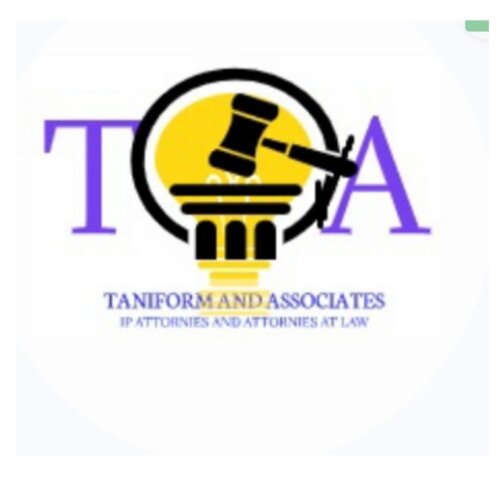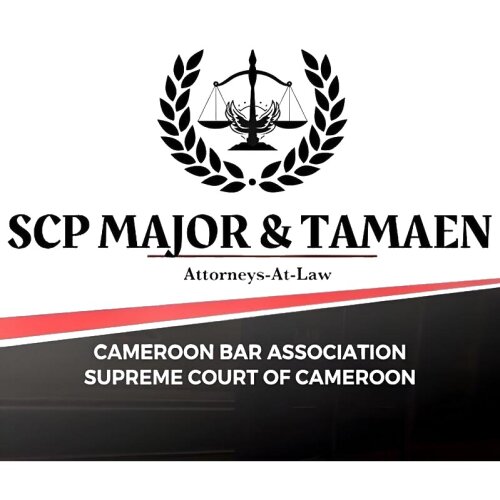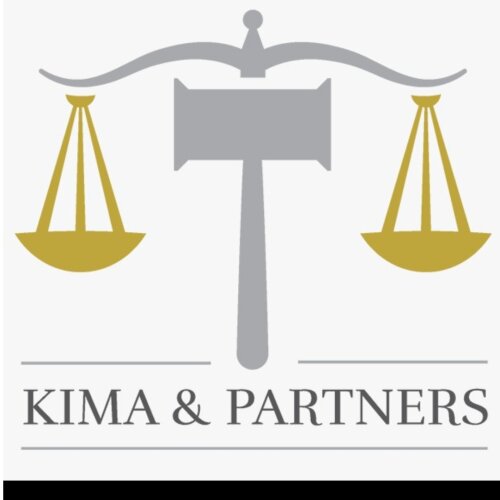Best International Trade Law Lawyers in Yaoundé
Share your needs with us, get contacted by law firms.
Free. Takes 2 min.
List of the best lawyers in Yaoundé, Cameroon

Taniform and Associates IP Attorneys and Attorneys at Law
15 minutes Free ConsultationLegal guides written by CHI & Partners Law Firm:
- Ship Registration in Cameroon
About International Trade Law in Yaoundé, Cameroon
International Trade Law in Yaoundé, Cameroon, encompasses the laws and regulations governing trade relations between Cameroon and other countries. As Yaoundé is not only the capital but also an important economic center, this field of law includes areas such as import/export regulations, trade agreements, tariffs, and embargoes. The legal framework is influenced by Cameroon's commitments to regional and international organizations such as the World Trade Organization (WTO) and the Central African Economic and Monetary Community (CEMAC). Lawyers specializing in this area must navigate complex trade rules and ensure compliance with both national laws and international trade standards.
Why You May Need a Lawyer
There are several situations where legal assistance in International Trade Law might be necessary, including:
- Obtaining proper licenses and permits for import/export activities
- Navigating tariff classifications and disputes
- Resolving conflicts over international contracts and agreements
- Dealing with sanctions or trade barriers imposed by foreign countries
- Ensuring compliance with both local and international anti-dumping regulations
- Addressing intellectual property rights issues related to international trade
- Responding to investigations by trade authorities
- Navigating trade agreements that affect multinational business operations
- Seeking legal recourse in case of breach of international contracts
- Advising on cross-border mergers and acquisitions
Local Laws Overview
The legal landscape for International Trade in Yaoundé is shaped by several important laws and regulations, such as:
- Customs Code: Governs the procedure for importing and exporting goods, including licensing requirements and tariff classifications.
- Investment Code: Encourages foreign investment by outlining the rights and obligations of foreign investors in Cameroon.
- CEMAC Regulations: Regional regulations that dictate trade relations and business activities within the member states of the Central African Economic and Monetary Community.
- World Trade Organization (WTO) Agreements: Cameroon's commitments under these agreements, including aspects like trade facilitation and dispute settlement, affect local trade policies.
- Anti-Dumping and Countervailing Act: Addresses concerns related to unfair trade practices such as dumping and the imposition of countervailing duties.
Frequently Asked Questions
What is the role of a lawyer in international trade disputes?
A lawyer can represent your interests in disputes by providing advice on compliance with international trade regulations, negotiating settlements, and representing your case in arbitration or court proceedings.
Do I need a license to export goods from Cameroon?
Yes, typically, you will need to obtain an export license and comply with specific regulatory requirements based on the nature of goods being exported.
What are the challenges of international trade law compliance in Cameroon?
Compliance challenges may include navigating complex regulations, understanding tariff classifications, and managing trade documentation efficiently to avoid legal pitfalls.
Can international trade agreements affect local businesses?
Yes, international trade agreements can significantly affect local businesses by altering tariffs, import quotas, and other trade barriers that impact cost and access to foreign markets.
What are trade tariffs and how do they impact my business?
Trade tariffs are taxes imposed on imported goods. They can affect your business by increasing costs and impacting pricing strategies for imported and exported products.
How do international sanctions affect trade with specific countries?
Sanctions can limit or prohibit trade with specific countries, affecting the availability or legal transfer of goods to and from those regions.
What legal issues might arise with cross-border transactions?
Potential issues include disputes over contractual obligations, compliance with differing local laws, transfer pricing, and ensuring timely and secure payment across borders.
How are international intellectual property rights protected in trade?
Legal regulations ensure protection through international treaties and local enforcement, preventing unauthorized use of intellectual property such as trademarks and patents in cross-border trade.
Are there specific local incentives for international traders in Cameroon?
The government offers various incentives, including tax breaks and support programs, designed to encourage investment and trade in certain sectors.
How do I resolve a trade conflict with a foreign entity?
You can seek resolution through diplomatic negotiation, arbitration, or legal litigation depending on the nature of the conflict and clauses within trade agreements.
Additional Resources
Consider reaching out to the following resources for assistance and information:
- Cameroon Chamber of Commerce, Industry, Mines, and Crafts (CCIMA)
- The Ministry of Trade of Cameroon
- World Trade Organization (WTO) resources specific to Cameroon
- CEMAC regional trade authorities
- Local law firms specializing in international trade law
Next Steps
If you need legal assistance in International Trade Law, consider the following steps:
- Identify your specific legal needs and the scope of your trade activities.
- Consult with a specialized international trade lawyer to understand the legal requirements and implications.
- Gather relevant trade documentation and information that may be necessary for legal consultations.
- Explore local and regional regulatory bodies that offer guidance and support for international trade issues.
- Assess potential legal strategies and solutions with your lawyer based on the current legal framework and your business objectives.
Lawzana helps you find the best lawyers and law firms in Yaoundé through a curated and pre-screened list of qualified legal professionals. Our platform offers rankings and detailed profiles of attorneys and law firms, allowing you to compare based on practice areas, including International Trade Law, experience, and client feedback.
Each profile includes a description of the firm's areas of practice, client reviews, team members and partners, year of establishment, spoken languages, office locations, contact information, social media presence, and any published articles or resources. Most firms on our platform speak English and are experienced in both local and international legal matters.
Get a quote from top-rated law firms in Yaoundé, Cameroon — quickly, securely, and without unnecessary hassle.
Disclaimer:
The information provided on this page is for general informational purposes only and does not constitute legal advice. While we strive to ensure the accuracy and relevance of the content, legal information may change over time, and interpretations of the law can vary. You should always consult with a qualified legal professional for advice specific to your situation.
We disclaim all liability for actions taken or not taken based on the content of this page. If you believe any information is incorrect or outdated, please contact us, and we will review and update it where appropriate.













